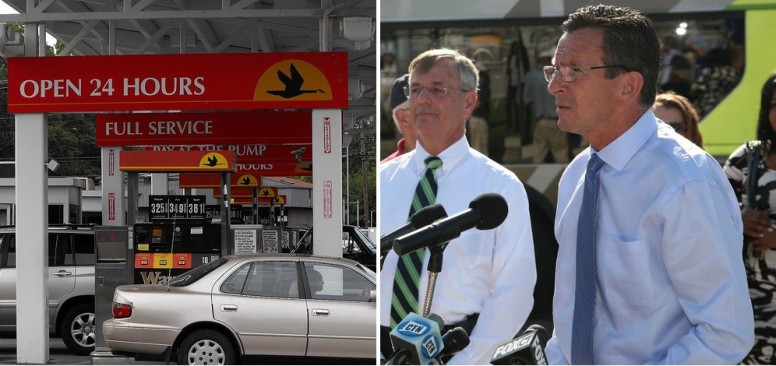New Jersey’s 14.5-cent-per-gallon gas tax is comprised of a 10.5-cent motor fuels tax and a 4-cent petroleum products tax. Currently, only the 10.5 cent motor fuels tax is constitutionally required to be spent on transportation. For a state that lacks a long-term sustainable funding source for transportation projects and the political will to increase the gas tax, every penny counts. That’s why Assembly Speaker Vincent Prieto introduced a bill last month which would ask voters to decide whether all 14.5 cents of the gas tax revenue (and all 17.5 cents per gallon of diesel tax revenue) collected in the Garden State should go into the state’s Transportation Trust Fund.
Until recently, the bill hadn’t been expected to receive a full vote. But late Monday, the last day of the legislative session, both the Assembly (75-0) and the Senate (35-2) overwhelmingly passed the measure. Now it’s up to New Jersey voters to decide if all of the state’s fuel tax revenue — including any future revenues raised through a gas tax increase — should be dedicated solely for transportation purposes.
If you’re a regular Mobilizing the Region reader and the last phrase of the above paragraph sounds familiar to you, it should. That’s because Connecticut Governor Dannel Malloy has been trying to accomplish a similar goal: to protect transportation funds via a constitutional lockbox. But there’s a difference between how the two states aim to go about securing these funds.
The New Jersey referendum, if approved by voters in November, would guarantee that fuel tax revenues go into the Transportation Trust Fund, which isn’t susceptible to raids. Once funds are placed in the TTF, they can only be used for transportation purposes.
In Connecticut, however, state leaders have raided the state’s Special Transportation Fund to help plug holes elsewhere in the budget. Last month during a special legislative session, lawmakers tried to pass a measure that would ask voters to approve a constitutional amendment restricting the Special Transportation Fund for transportation purposes only. But the measure failed to reach the required 3/4 majority — not because lawmakers were against restricting funds for their intended purpose, but because bill, as it was written, “failed to define the source of revenue coming in [and] allows diversions before the money even gets to the fund.” These concerns were not unwarranted: in June, after Governor Malloy announced that a $436 million in state sales tax receipts would be directed to the Special Transportation Fund over the following two years, it turned out that $371 million in revenue “normally earmarked for transportation would stay in the general fund.”
Neither state’s approach so far is perfect. New Jersey has the second lowest gas tax in the nation, and its purchasing power has reached an all-time low. Of course it makes sense to protect what limited transportation funds are available, but the way the amendment is written, it protects only specific fuel taxes and leaves out potential additional future sources of transportation funding.
Connecticut leaders came close to getting the lockbox passed, but they will essentially have to take a page out of New Jersey’s playbook in order to pass the measure in this year’s session. The lockbox bill must be rewritten so that transportation revenues — current or future — cannot be diverted before they reach the STF.
New Jersey, on the other hand, won’t be able to borrow what is perhaps Connecticut’s strongest asset in the effort to protect transportation funds: a governor who understands his state’s transportation problems and is actively working to solve them.


As if the gas tax comes even close to funding the TTF…it doesn’t, and this is political theater.
Constitutionally dedicating taxes for any reason is bad government. Needs change over time and it is the responsibility of the Legislative and Executive branches to set priorities and allocate available revenue to the most important needs.
I used to believe dedicated taxes but for many things including roads having a tax that at least roughly the cost of providing the capital and operating costs of providing a service and does so at least somewhat proportionally to the use of the service probably is a better way to go. It allows the public to better judge the expenditures. Publishing the figures for transportation related income and transportation related outgo woul alo be very helpful.
[…] is the passage of a statute (or statutes) directing specific revenue sources to the STF, not unlike what New Jersey is trying to accomplish with its gas […]